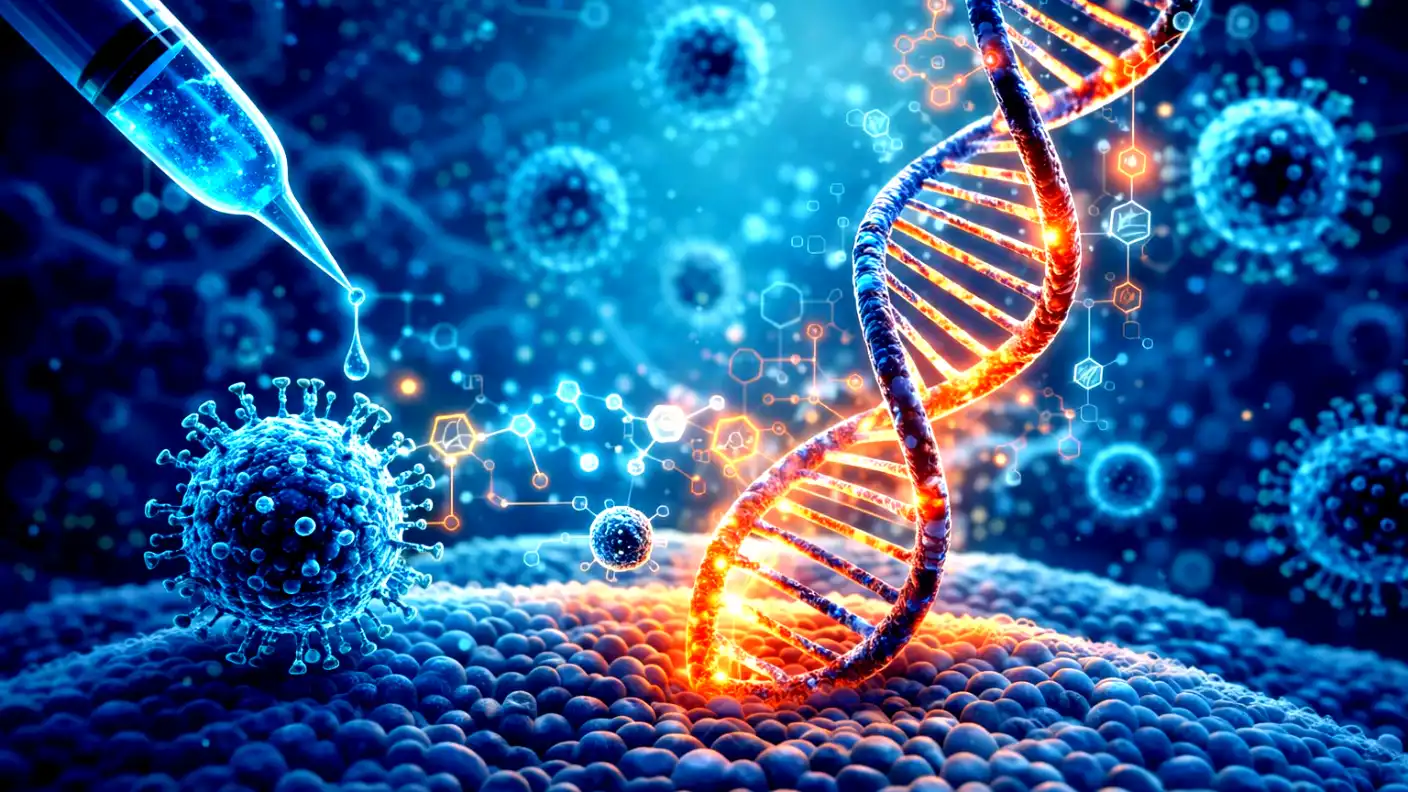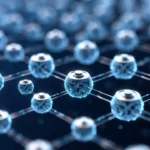Nanobiotechnology represents a groundbreaking intersection of nanoscience and biology. Manipulating matter at the nanoscale opens up new frontiers in healthcare, environmental conservation, and scientific research. This cutting-edge field harnesses nanotechnology’s incredible precision to address complex biological challenges. In this comprehensive exploration, we delve into nanobiotechnology, uncovering its significance, diverse applications, and transformative potential for shaping our future.
The Significance of Nanobiotechnology
Nanobiotechnology is not merely an amalgamation of two disciplines; it’s a paradigm shift in understanding, manipulating, and utilizing biological systems.
Precision in Healthcare
At the core of nanobiotechnology is the ability to work at the nanoscale, allowing researchers and medical professionals to interact with biological molecules, cells, and tissues at a level of precision that was once unimaginable. This precision revolutionizes healthcare, from early disease detection to targeted drug delivery and regenerative medicine.
Environmental Conservation
It also plays a pivotal role in environmental conservation. Nanoscale materials and techniques can efficiently remove pollutants and enhance resource utilization, contributing to a greener and more sustainable planet. They enable the development of innovative solutions for pollution remediation, water purification, and sustainable agriculture.
Techniques in Nanobiotechnology
The development of nanobiotechnology relies on a wide range of techniques that leverage the unique properties of nanomaterials and biological systems.
Nanoparticles for Drug Delivery
Nanoparticles, often made from biocompatible materials, are used as carriers for drugs and therapeutic agents. They can transport treatments directly to diseased cells, minimizing side effects and improving the efficacy of therapies. This approach is revolutionizing cancer treatment, among other medical fields.
Biosensors and Diagnostics
Nanobiotechnology has given rise to highly sensitive biosensors that detect specific biological molecules, pathogens, and biomarkers. These sensors are integral to rapid and accurate diagnostics, enabling early disease detection and monitoring.
Tissue Engineering and Regenerative Medicine
Nanobiotechnology is driving advances in tissue engineering and regenerative medicine. By creating nanoscale scaffolds and materials, scientists can promote tissue growth and repair damaged organs, offering hope for patients with injuries and degenerative diseases.
Applications of Nanobiotechnology
The applications of nanobiotechnology are as diverse as they are transformative, with far-reaching impacts across a spectrum of industries.
Medicine and Healthcare
Nanobiotechnology is steering a profound shift towards personalized medicine in medicine and healthcare. Treatments tailored to an individual’s genetic makeup and specific health conditions are becoming increasingly common. This personalization not only enhances treatment efficacy but also reduces adverse effects. It represents a new frontier in healthcare, where the uniqueness of each patient is embraced and leveraged for better outcomes.
Environmental Remediation
Nanobiotechnology plays a pivotal role in environmental remediation efforts. Nanomaterials exhibit the remarkable ability to capture and neutralize pollutants, cleanse water sources, and enhance soil quality for sustainable agriculture. This approach offers hope in the face of environmental challenges, offering practical and efficient solutions for a greener and more sustainable planet.
Agriculture and Food Safety
The agricultural sector is transforming nanobiotechnology. Through the integration of nanoscale innovations, improved crop yields, enhanced disease resistance, and more effective pest control are becoming possible. Additionally, nanoscale sensors bolster food safety by detecting contaminants and pathogens in food products, ensuring the integrity of our food supply.
Scientific Research
Scientific research also reaps the benefits of nanobiotechnology. Scientists can now peer into the intricacies of biological systems with unprecedented precision. They can study cellular processes, molecular interactions, and genetic phenomena with newfound clarity. The fusion of nanoscience and biology has unlocked a treasure trove of knowledge, propelling scientific frontiers further into uncharted territory.
Challenges and Ethical Considerations
The rapid progress of nanobiotechnology is accompanied by challenges and ethical considerations that warrant meticulous attention.
Safety and Environmental Impact
The utilization of nanomaterials in biotechnology prompts critical questions about their long-term safety and environmental consequences. Rigorous research and risk assessment are essential to identify potential hazards and develop mitigation strategies. Responsible stewardship of nanomaterials is imperative to ensure their benefits outweigh any adverse effects.
Ethical Use of Biotechnological Tools
Nanobiotechnological tools, especially those related to gene editing and synthetic biology, present ethical dilemmas. Concerns about unintended consequences, misuse, and unforeseen societal impacts necessitate the establishment of clear ethical guidelines and robust regulatory frameworks. Striking the right balance between scientific advancement and ethical considerations is challenging.
Access and Equity
Ensuring equitable access to nanobiotechnological advancements is a moral imperative. Bridging the digital divide and addressing disparities in access to healthcare and environmental solutions are paramount. Efforts must be made to ensure that the benefits of nanobiotechnology are distributed fairly and reach all communities, regardless of their socio-economic status.
The Future of Nanobiotechnology
Nanobiotechnology holds immense promise in reshaping the future, promising breakthroughs in healthcare, environmental sustainability, and scientific discovery.
Personalized Medicine
In healthcare, nanobiotechnology is steering us toward an era of personalized medicine, where treatments are tailored precisely to an individual’s genetic makeup and health profile. This approach promises better outcomes and shifts how we perceive healthcare. It represents the pinnacle of patient-centered care.
Environmental Solutions
Nanobiotechnology’s role in environmental solutions will only grow in significance. As environmental challenges mount, its nanoscale efficiency in pollution remediation, resource conservation, and sustainable agriculture will be instrumental in safeguarding our planet’s future. It is the catalyst for transformative change in our relationship with the environment.
Scientific Breakthroughs
In scientific research, nanobiotechnology will continue to fuel groundbreaking discoveries. The unprecedented precision it offers in studying biological systems at the molecular level will unlock mysteries of life and disease. It will drive advances in genomics, neuroscience, microbiology, and countless other fields, reshaping our understanding of the natural world.
Conclusion
Nanobiotechnology is not just a scientific field but a gateway to a future where the boundaries between biology and technology blur. Its significance lies in its power to address some of humanity’s most pressing challenges and its potential to redefine how we interact with the biological world. As nanobiotechnology evolves, ethical considerations, safety, and accessibility must guide its development and application.
The future it heralds is one where diseases are conquered with unprecedented precision, environmental crises find sustainable solutions, and scientific frontiers expand beyond imagination. Nanobiotechnology is the architect of a future where the synergy between biology and technology creates a brighter, healthier, and more sustainable world.




